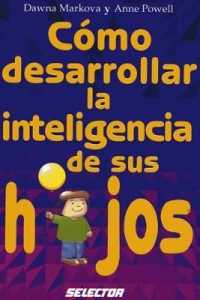Full Description
The primary goal of science is to "get it right," meaning that scientists seek to accurately document the world as it is. While erroneous conclusions and flawed theories can and do occur, they can only be tolerated as long as reliable mechanisms of self-correction exist, but an array of recent evidence suggests that this is not always the case.
This book offers a behavioral science perspective on how scientific practice becomes compromised and provides recommendations for improvement. Broadening the discussion of research integrity beyond replication, publication biases, statistics, and methods, this book addresses the full complexity of the issue and serves academics and policy makers concerned with the reliability and validity of scientific findings across the social sciences. It tackles challenges presented by published reports and textbooks, addresses the ways that institutional review boards (IRBs) can influence the course of research, and discusses the weaknesses of meta-analysis, which is often recommended as a possible corrective measure for suboptimal scientific practice. The book concludes with an organizing framework to investigate how scientists' behaviors can impact the reliability and validity of scientific research.
Contents
Chapter 1: Science Reform
Annabell Suh, Jon A. Krosnick, Lee J. Jussim, Steven T. Stevens, Stephanie Anglin
Chapter 2: Improving Research Transparency in the Social Sciences: Registration, Pre-Registration, and Multiple Testing Adjustments
Garret Christensen, Edward Miguel
Chapter 3: What Can We Do About Our (Untrustworthy) Literature?
Harold Pashler, Christine R. Harris
Chapter 4: Is Science in Crisis?
Danielle Fanelli
Chapter 5: Accuracy and Completeness in the Dissemination of Classic Findings in Social Psychology
David A. Wilder, Thomas E. Cuthbert
Chapter 6: Strengths and Weaknesses of Meta-Analyses
Katie Corker
Chapter 7: Statistical Inference in Behavioral Research: Traditional and Bayesian Approaches
Alexander Etz, Steven N. Goodman, Joachim Vandekerckhove
Chapter 8: Stimulus Sampling and Research Integrity
Byron Reeves, James J. Cummings
Chapter 9: Questionable Interpretive Practices: Data (Mis)Interpretation and (Mis)Representation as Threats to Scientific Validity
Lee Jussim, Sean T. Stevens, Stephanie Anglin
Chapter 10: Questionable Research Practices
Ernest H. O'Boyle
Chapter 11: p-Hacking: A Strategic Analysis
Robert J. MacCoun, Martin Götz
Chapter 12:The Importance of Type III and Type IV Epistemic Errors for Improving Empirical Science
Charlotte Ursula Tate
Chapter 13: Publication Bias in the Social Sciences: A Threat to Scientific Integrity
Neil Malhotra, L. J. Zigerell
Chapter 14: Let's Peer Review Peer Review
Simine Vazire
Chapter 15: Impact and Influence of the Institutional Review Board: Protecting the Rights of Human Subjects in Scientific Experiments
Alison Dundes Renteln
Chapter 16: Viral Science and The Tragedy of the Scientific Commons
Tanya Menon, Christopher Winship
-

- 洋書
- SECONDEMAIN
-

- 洋書電子書籍
- 古代ギリシア・ローマ世界における医療の…





